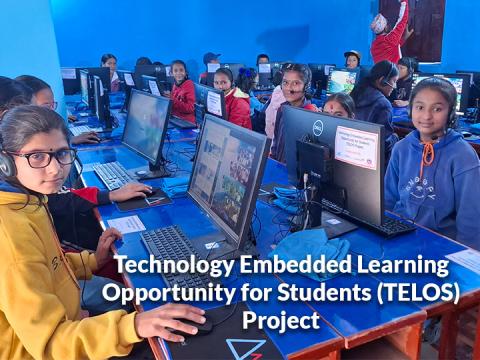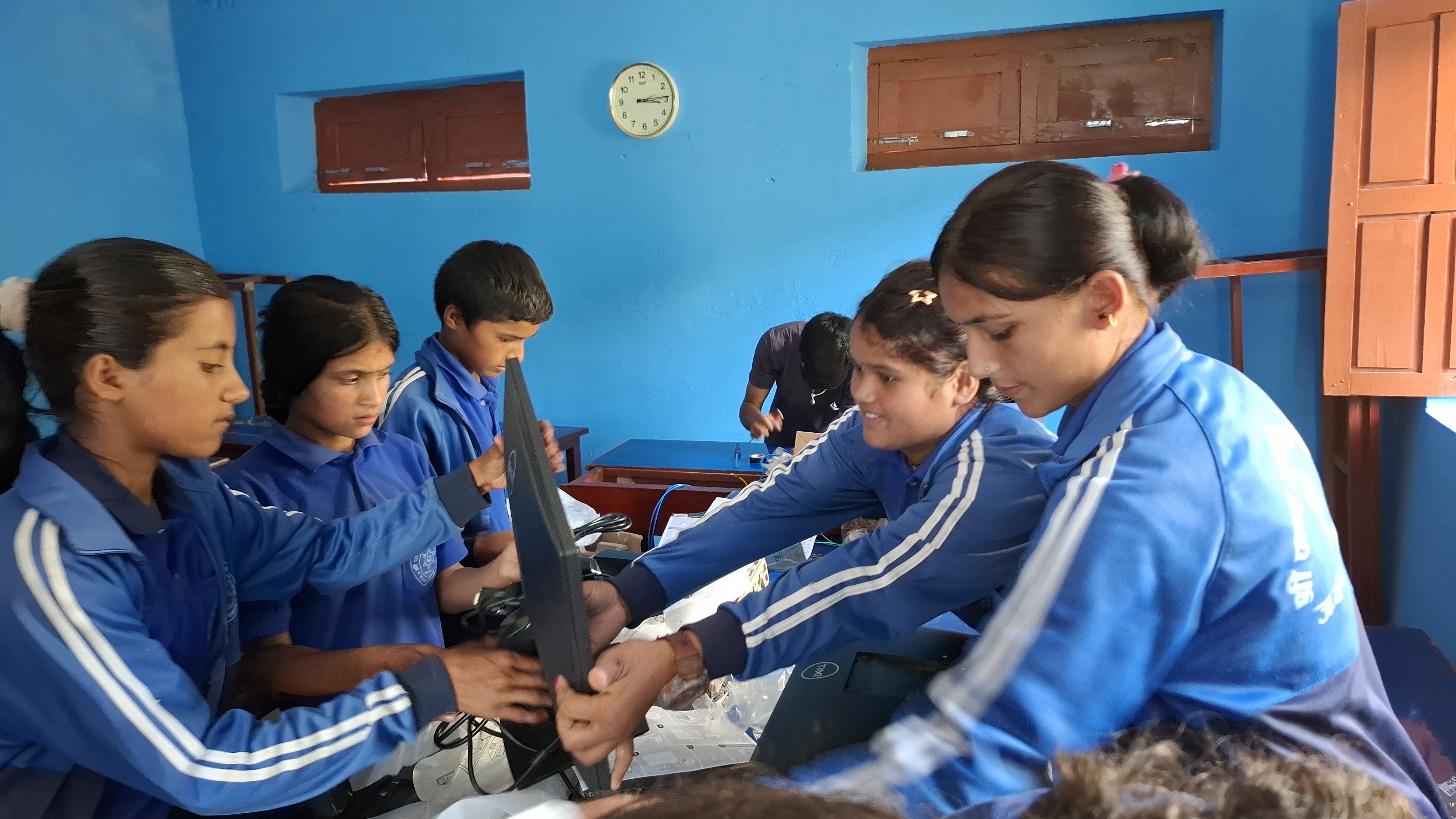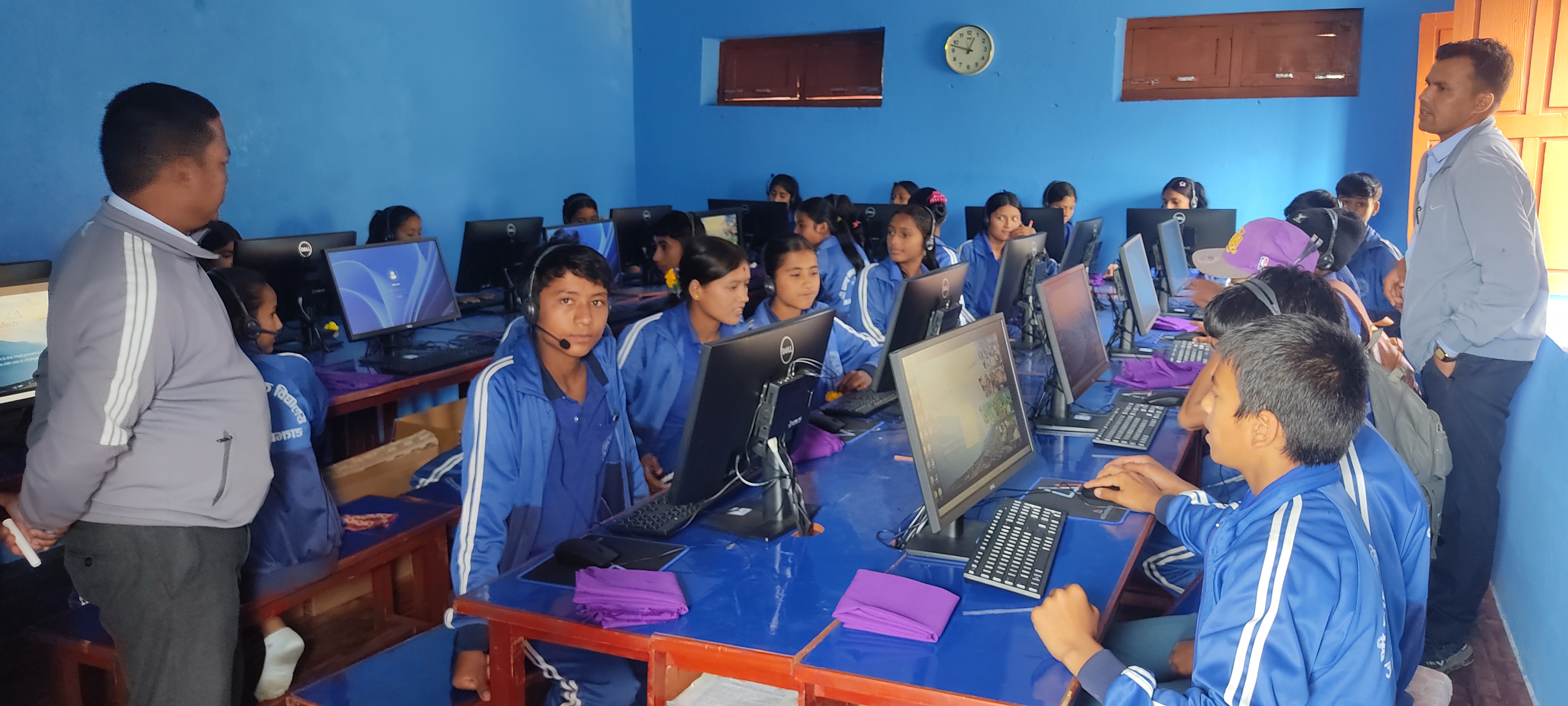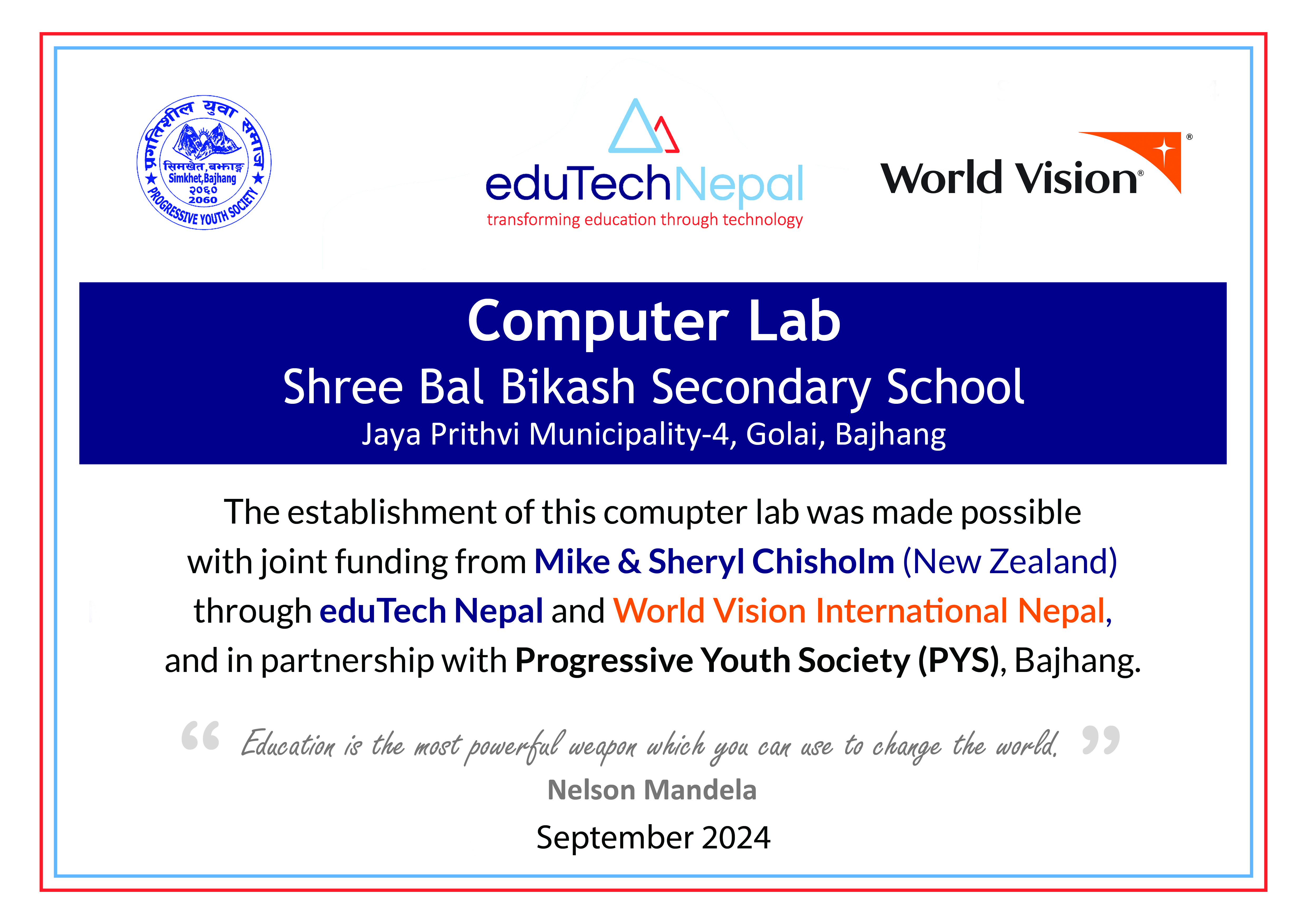Empowering Education through ICT

Technology Embedded Learning Opportunity for Students (TELOS) Project

Overview
The Technology Embedded Learning Opportunity for Students (TELOS) project was a collaborative effort between World Vision International Nepal, Progressive Youth Society-Bajhang, and EduTech Nepal. Implemented from January to December 2024, this initiative aimed to enhance the ICT infrastructure in eight schools of Jayprithivi Municipality in the Bajhang district, leading to improved learning outcomes for students. The project focused on increasing access to and improving the ICT-enabling learning environment by providing adequate learning opportunities, strengthening the capacity of school management committees (SMCs) and parent-teacher associations (PTAs) on the importance of ICT-based education, promoting ICT-embedded learning opportunities, and increasing student engagement in learning.

Key Activities
The project encompassed a variety of activities, including teacher and student training on basic computer skills, lab handling orientation, and the use of offline learning resources. It also involved school management training to enhance the management skills of school staff for effective ICT lab operation. Additionally, the project aimed to activate and support child clubs to promote ICT use among students, conduct capacity-building activities such as coding, child club operation training, orientation on ICT Lab, ICT based extracurricular activities, and provide ongoing support to schools through regular monitoring and assistance.

Major Achievements
The project successfully established fully equipped ICT labs in eight schools, featuring a total of 144 monitors. Comprehensive ICT operation procedures were developed to standardize implementation across schools. Additionally, schools created lab maintenance funds to ensure the long-term sustainability of these ICT labs. As a result, student engagement increased, with students becoming more actively involved in learning and teachers improving their ICT skills. Furthermore, the ICT labs were utilized for a variety of extracurricular activities, which enhanced student skills and confidence.
Project Reach
The project positively impacted a wide range of individuals, benefiting a total of 5,078 people, including 2,349 girls, 2,072 boys, 122 women, and 535 men. It reached 3,593 children from vulnerable communities, 826 children from marginalized communities, and 744 children from remote communities. Additionally, 43 children with disabilities were provided with inclusive learning opportunities through ICT Lab.

Sustainability and Collaboration
EduTech labs were equipped with H-Manager, a tool that allowed teachers to control the class and manage student activities effectively. They also featured four hours of power backup to ensure uninterrupted learning. The labs utilized thin client technology, which efficiently connected monitors to servers, reducing costs and simplifying management. Additionally, they provided access to offline resources, including the government curriculum and virtual labs for offline learning.
EduTech Nepal has committed to provide technical support for five years, including a financial partnership for five schools and technical support in all schools. Schools played a key role in managing and sustaining ICT resources, with lab handling training and curriculum-based teacher training provided to ensure effective use. The local government supported schools by helping establish maintenance funds and providing learning resources.

Learning and Best Practices
Field-based training proved to be more effective than centralized training, allowing for hands-on, practical learning experiences directly in the schools. The collaboration with EduTech Nepal leveraged the strengths of both organizations, enhancing the overall impact of the project. By maximizing the use of ICT labs for multiple subjects, the project ensured that ICT resources were utilized to their fullest potential. Additionally, community engagement efforts extended the benefits of the project to the wider community, fostering a greater appreciation and understanding of the importance of ICT in education.
The TELOS project is a significant step towards integrating ICT in education in Bajhang East. By improving infrastructure, training teachers, and engaging stakeholders, the project will create a sustainable and effective learning environment for all students. The collaboration between Progressive Youth Society and EduTech, along with the support from local government and community engagement, will lay a strong foundation for the continued success and expansion of ICT in education. This approach will ensure that future generations benefit from enhanced educational opportunities and resources.